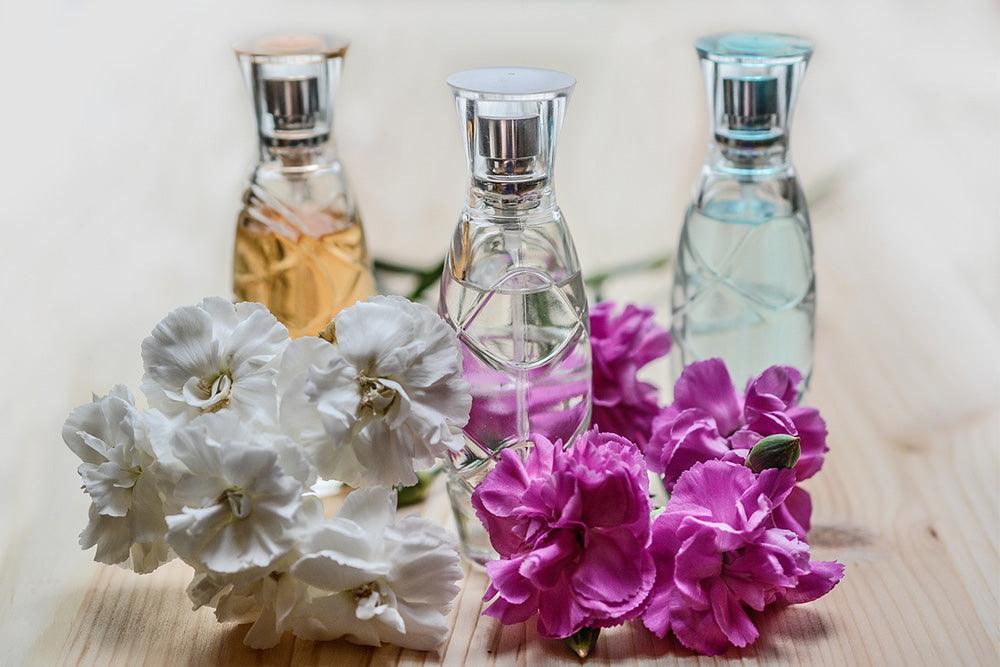
Niche vs. Mainstream Perfumery
Understand the differences between niche, artisanal natural perfumes, and mass-produced fragrances.
The world of perfumery is a scented tapestry woven with diverse fragrances, each telling a unique story. Two distinct categories stand out within this aromatic realm: niche and mainstream perfumery. These two segments cater to different olfactory preferences, sensibilities, and philosophies. In this exploration, we'll embark on a fragrant journey to understand the differences between niche, artisanal natural perfumes and mass-produced fragrances that dominate the market.
Defining Niche Perfumery
Niche perfumery is like a hidden garden, accessible only to those seeking it. These fragrances are crafted with the utmost care, precision, and appreciation for natural ingredients. Here are some defining characteristics:
- Limited Production: Niche perfumes are produced in limited quantities. Perfumers often consider themselves artists, crafting small batches of scents with an almost obsessive attention to detail.
- Artistic Expression: Niche perfumers can experiment with unique and unusual scent combinations. This artistic expression results in fragrances that stand apart from the crowd.
- Quality Ingredients: Natural, high-quality ingredients are a hallmark of niche perfumery. Perfumers source rare and exotic materials, often from sustainable and ethical suppliers.
- Exclusivity: Niche fragrances are exclusive and not widely available. They sell through select boutiques, online stores, or directly from the perfumer.
- Storytelling: Niche perfumes often have a compelling narrative or theme, enriching the olfactory experience with deeper meaning.
The Allure of Mainstream Perfumery
In contrast, mainstream perfumery is like a bustling marketplace, with many choices to cater to the masses. Here's what characterises this segment:
- Mass Production: Mainstream fragrances are produced in large quantities to meet high demand. They are readily available in countless retail stores and online marketplaces.
- Commercial Appeal: These fragrances are often formulated with broad appeal in mind. They aim to please many consumers, making them safe and versatile.
- Affordable Pricing: Mass-produced perfumes are generally more budget-friendly than their niche counterparts. They are designed to be accessible to the average consumer.
- Branding and Marketing: Mainstream perfumes invest heavily in branding and marketing to create a strong presence in the market. Celebrity endorsements and extensive advertising campaigns are expected.
- Consistency: Mainstream fragrances prioritize consistency in scent across batches, ensuring that consumers get the same experience every time.
The Battle of Ingredients
One of the most significant differences between niche and mainstream perfumery is the choice of ingredients. Niche perfumers often opt for natural perfumery essences, while mainstream brands frequently incorporate synthetic chemicals. Here's a closer look at this divide:
Niche Perfumery:
These artisans emphasize natural ingredients like essential oils, absolutes, and extracts. They are passionate about sustainability and ethical sourcing. Niche perfumers celebrate the uniqueness of each natural component and the depth it brings to their creations.
Mainstream Perfumery:
Mass-produced fragrances rely heavily on synthetic aroma chemicals. These compounds are cost-effective and allow for precise replication of scents. While some may dismiss them as artificial, synthetic ingredients can offer consistency and versatility.
Understanding Fragrance Development
Creating a perfume is an intricate dance between art and science. Niche and mainstream perfumers follow distinct paths:
- Niche Perfumery: Crafting a niche perfume is akin to composing a symphony. Perfumers carefully select each note, blending them in precise proportions. These fragrances often undergo extended maturation, allowing the ingredients to harmonize and evolve.
- Mainstream Perfumery: In mass production, efficiency is vital. Mainstream perfumers work to replicate popular scents efficiently. The focus is on creating a smell that is pleasant, mass-appealing, and easily replicable on a large scale.
- The Role of Creativity: Niche and mainstream perfumers approach their craft with varying degrees of creativity:
- Niche Perfumery: Niche perfumers are like master painters, unafraid to explore unconventional scent combinations. They prioritize innovation and are driven by a desire to create something truly unique.
- Mainstream Perfumery: Mainstream perfumery often adheres to tried-and-true formulas. While this approach ensures market success, it may limit the opportunity for groundbreaking, avant-garde fragrances.
- Embracing Diversity in Scent: Niche and mainstream perfumery contribute to the diverse world of fragrance, catering to different tastes and preferences. The choice between the two often comes down to personal values, olfactory preferences, and the desire for exclusivity.
Conclusion
Niche and mainstream perfumery are two distinct worlds within the fragrance industry, each with its allure and appeal. Whether you gravitate toward the artistic and exclusive nature of niche perfumes or the accessibility and familiarity of mainstream fragrances, your choice ultimately reflects your unique olfactory journey. Ultimately, both segments contribute to the vibrant and diverse landscape of perfumery, ensuring a scent for every nose and a story for every soul.
Connect with us on Facebook, Instagram and YouTube
Frequently Asked Questions about Niche Vs. Mainstream Perfumery
1: Are niche perfumes more expensive than mainstream ones?
Yes, niche perfumes are generally more expensive due to high-quality natural ingredients, limited production, and artistic craftsmanship.
2: Do mainstream perfumes use synthetic ingredients exclusively?
While many mainstream perfumes incorporate synthetic ingredients, some include natural components. However, synthetics are more common in mass production.
3: Are niche perfumes better in terms of quality and longevity?
Niche perfumes often offer exceptional quality and longevity due to their use of premium natural ingredients and meticulous craftsmanship.
4: Can I find niche perfumes in regular department stores?
Niche perfumes are typically found in specialized boutiques, online stores, or directly from the perfumer. They are less commonly available in regular department stores.
5: What is the difference between niche and mainstream perfumery?
Niche perfumery is an artisanal haven, prioritizing artistic expression and high-quality ingredients. Niche perfumers, often likened to artists, craft fragrances in limited batches, meticulously selecting each note for a unique olfactory experience. Mainstream perfumery, on the other hand, is a thriving marketplace known for mass-produced fragrances designed for broad appeal.
6: Who is the target audience for niche vs. mainstream perfumes?
Niche fragrances cater to fragrance enthusiasts who seek exclusivity, artistic expression, and a deeper connection to the perfumer's vision. Mainstream perfumes target a wider audience, offering familiar and well-liked scents at accessible price points.
7: What are the defining characteristics of niche perfumes?
- Limited Production: Niche perfumes are crafted in small batches, ensuring meticulous attention to detail and the ability to experiment with rarer ingredients.
- Artistic Expression: Niche perfumers prioritize artistic freedom, resulting in unique and often unconventional scent combinations that challenge the norm.
- Quality Ingredients: Natural ingredients like essential oils, absolutes, and extracts are the cornerstone of niche perfumery. These ingredients add depth and complexity to the fragrance, evolving.
- Exclusivity: Niche fragrances are not readily available in every store. They are often found in select boutiques, online retailers specializing in niche perfumes, or directly from the perfumer.
- Storytelling: Many niche perfumes carry a narrative or theme, enriching the olfactory experience with a deeper layer of meaning.
8: Why are mainstream perfumes mass-produced?
Mainstream perfumery caters to a wide audience, necessitating large-scale production to meet high demand. This allows for more affordable pricing and wider distribution.
9: What factors influence the scent profile of mainstream fragrances?
Mainstream perfumes prioritize broad appeal, often featuring familiar and well-liked scent profiles. Consumer preferences and market trends heavily influence their creation.
10: Are mainstream perfumes generally cheaper than niche perfumes?
Yes, mainstream perfumes are generally more affordable due to mass production and the use of synthetic aroma chemicals.
11: How do mainstream perfume brands promote their products?
Mainstream perfume brands heavily invest in marketing and branding campaigns. Celebrity endorsements, extensive advertising, and easily recognizable packaging are hallmarks of mainstream perfumery.
12: Is there consistency in the scent of mainstream perfumes across batches?
Yes, consistency is crucial in mainstream perfumery. Synthetic ingredients ensure the fragrance smells the same across different batches.
13: What is the difference between natural and synthetic ingredients in perfume?
Natural ingredients like essential oils and absolutes are derived from botanical sources. They offer a complex and nuanced aroma profile that evolves. Synthetic aroma chemicals are man-made replications of natural scents or entirely new creations. They are generally more affordable and consistent.
14: Why do niche perfumers prefer natural ingredients?
Niche perfumers appreciate the depth, complexity, and subtle variations natural ingredients bring to a fragrance. They are also passionate about sustainability and ethical sourcing practices.
15: What are the advantages of using synthetic aroma chemicals?
Synthetic aroma chemicals offer several advantages: affordability, consistency, and the ability to create entirely new scent profiles not found in nature.
16: How does the development process differ between niche and mainstream perfumery?
Niche perfume creation is a more artistic and time-consuming process. Perfumers experiment with different notes, allowing the fragrance to evolve organically. Mainstream perfumery prioritizes efficiency, with a focus on replicating popular scents quickly and consistently.
17: How does the approach to creativity differ between niche and mainstream perfumers?
Niche perfumers are like artists, pushing boundaries and exploring unconventional scent combinations. They are driven by a desire to create something unique and personal. Mainstream perfumers often adhere to tried-and-true formulas to ensure market success.
18: Are niche perfumes more daring in their scent combinations?
Yes, niche perfumes are more likely to feature unusual and unexpected notes, offering a more daring and exploratory fragrance experience.
19: Which type of perfumery offers a wider variety of unique scents?
Niche perfumery boasts a wider variety of unique scents due to the emphasis on artistic expression and experimentation. Unconstrained by mainstream market demands, niche perfumers have the freedom to explore less familiar olfactory territories.
20: What makes Aranyam Perfumes & Attars unique?
At Aranyam, we bridge the gap between traditional and modern perfumery. We use high-quality natural ingredients like essential oils and absolutes while embracing innovation to create captivating and unique fragrances.


